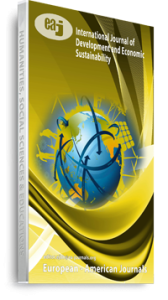This study investigates the impact of oil price shocks on selected macroeconomic variables in Nigeria from 1990-2021. The research employs ex-post facto methodology and econometric analysis, focusing on variables such as oil price, unemployment, balance of payment, exchange rate, and real gross domestic product (GDP). Utilising the annual Vector Autoregressive (VAR) model, the study explores the relationships among these variables, assuming them to be endogenous. Time series data from the Central Bank of Nigeria’s statistical bulletin is collected for the analysis. The result of the unit root test indicate that all the variables are integrated of order one (I (1)), necessitating further investigation into their relationships. Impulse response function revealed the dynamic responses of macroeconomic variables to oil price shocks over a ten-year period. Granger causality test highlight causal relationship among the variables, emphasizing the influence of oil price shocks on unemployment, balance of payment, and real GDP. The findings suggest that oil price shocks significantly affect the selected macroeconomic variables, with implications for exchange rates, unemployment rates, and balance of payments. The study recommends policy measures to insulate the economy from international oil price shocks, such as diversification, encouraging local production, and creating a favourable environment for foreign direct investment. Additionally, the government is advised to formulate and implement fiscal and monetary policies strategically to stabilise the economy amidst oil price fluctuations, thereby promoting sustainable economic growth.
Keywords: Central Bank of Nigeria (CBN), Foreign Direct Investment (FDI), Oil Price Shocks, Vector Autoregressive (VAR), impulse response function

